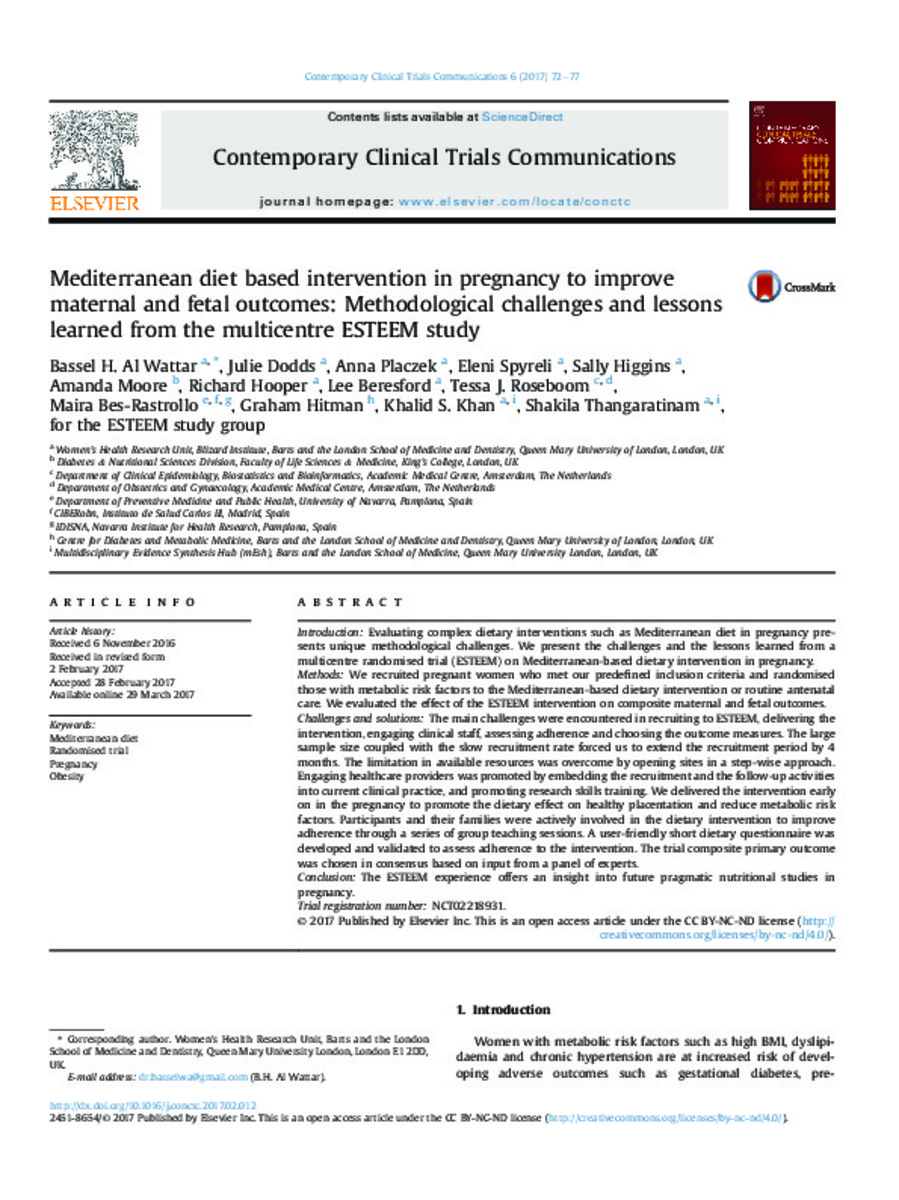Mediterranean diet based intervention in pregnancy to improve maternal and fetal outcomes: Methodological challenges and lessons learned from the multicentre ESTEEM study
Palabras clave :
Materias Investigacion::Ciencias de la Salud::Salud pública
Mediterranean diet
Randomised trial
Pregnancy
Obesity
Fecha de publicación :
2017
Nota:
This is an open access article under the CC BY-NC-ND license (http://creativecommons.org/licenses/by-nc-nd/4.0/).
Cita:
Al Wattar B.H., Dodds J., Placzek A., Spyreli E., Higgins S., Moore A., et al. Mediterranean diet based intervention in pregnancy to improve maternal and fetal outcomes: methodological challenges and lessons learned from the multicentre ESTEEM study. Contemp Clin Trials Commun 2017 Mar;6:72-77.
Aparece en las colecciones:
Estadísticas e impacto
0 citas en

0 citas en

Los ítems de Dadun están protegidos por copyright, con todos los derechos reservados, a menos que se indique lo contrario.







